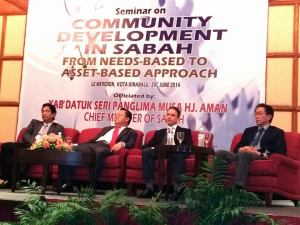The Court of Appeal has upheld a High Court order given to anOrang Asli community to stop a developer from destroying their customary land in the Iskandar Development Region in Johor.

A three-man bench chaired by Datuk Lim Yee Lan said in dismissing the developers’ appeal that there were no grounds to interfere with discretion of the High Court to grant an injunction.Following the dismissal of the appeal, the main trial which started in February will continue in the Johor Baru High Court on July 21.
Node Dua Sdn Bhd and Strait Bay Sdn Bhd had filed the appeal to set aside the injunction obtained by 188 Orang Asli Seletar, who had filed a suit against the developers and 11 others seeking a declaration of their customary land in and around Kampung Orang Asli Bakar Batu and Kampung Orang Asli Sungai Temon.
They are seeking damages for trespass and a permanent injunction relating to their customary territory and burial grounds.The Orang Asli Seletar’s customary territory is located within the Iskandar Development region.
However, the Orang Asli claimed that they had acquired customary rights over the land in the 1950s and contended that all subsequent alienation of their territory is unlawful.
They had applied for an injunction against Node Dua and Strait Bay, which had continued with reclamation, construction and earth works on the land despite the fact that the suit was still pending.The encroachment began in February last year, resulting in the Orang Asli filing for an injunction against the developers.
On December 10 last year, the High Court granted the injunction to preserve the land until the disposal of the main suit. – June 25, 2014
via Appeals Court favours Orang Asli, stop order against Iskandar developer stays – The Malaysian Insider.




